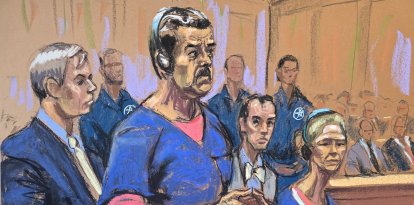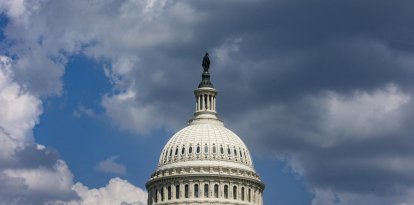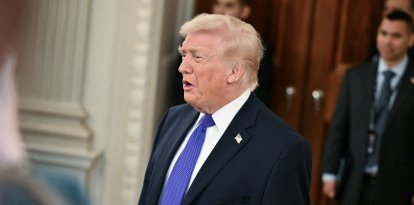The Supreme Court returns from recess with several items on its agenda, including guns, voting and LGBT issues
The court upheld a lower court's order that said hospitals could not be forced to perform abortions if they violated Texas law.

Supreme Court.
The U.S. Supreme Court returned from its summer recess Monday with regulation on firearms made from kits and healthcare for transgender youth on its agenda.
One of the first cases the justices will hear concerns so-called "ghost guns," which are firearms sold online or in stores in "buy, build and shoot" kits that can be easily assembled at home.
The court will consider a challenge by gun manufacturers and owners to a rule by the Bureau of Alcohol, Tobacco, Firearms and Explosives that requires ghost guns, like other firearms, to bear a serial number and that those who purchase them undergo a background check.
Another case is that the Justice Department is challenging a Tennessee ban on treatments for transgender minors, such as puberty blockers and hormone therapy.
In April, the court allowed a similar ban to go into effect in Idaho while court challenges continue. Under Idaho law, medical professionals who provide treatments to minors can face up to 10 years in prison.
The Supreme Court will also hear a challenge to a Texas law that requires pornographic websites to verify the age of visitors to limit minors' access to online sexual content.
Meanwhile, other issues such as abortion and voting also took center stage on the first day. The Supreme Court upheld a lower court's order that said hospitals could not be forced to perform abortions if they violated Texas law. With the decision, it rejects a Biden-Harris initiative to overturn the measure.
The Supreme Court also decided Monday that it will not take up a case to reinstate a lawsuit brought by Pennsylvania Republicans who challenged the Biden-Harris administration's actions expanding ballot access on the grounds that only state legislatures can regulate federal elections.
Similar was the court's decision not to evaluate whether Michigan's ban on public money for private schools can stand. This will allow the amendment to the Michigan Constitution to stand.
"Five families and a parental choice advocacy group sued Michigan over a 1970 state constitutional amendment that bars direct or indirect public financial support for sectarian schools. They claim the provision violates the U.S. Constitution’s guarantee to equal protection," explained The Hill.


























